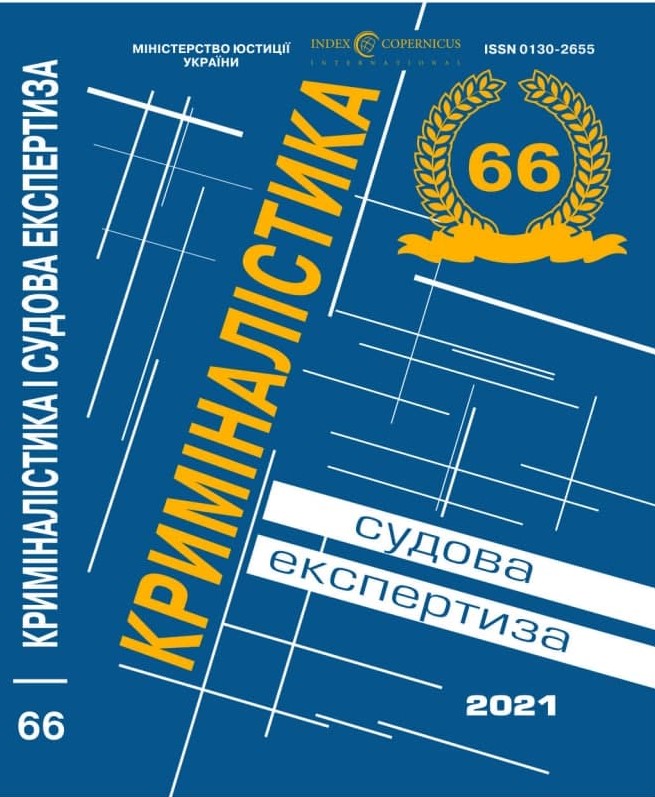
DOI: https://doi.org/10.33994/kndise.2021.66.17
T. Kryvak
The article deals with the features of translation of terms in the field of criminalistics and forensic examination and the issue of variance that arises in the process of translation.
It is noted that variance in the translation of terms in the field of criminalistics and forensic examination is both a positive and a negative phenomenon. However, the emergence of variance, as practice shows, is a prerequisite for the acquisition of an exact and unambiguous equivalent in language, depending on the context. The article indicates that the translation of terminology in the field of criminalistics is of particular interest, since the language of law, as a language of professional communication, has a vivid national specificity, due to the legal realities of national legal systems. Therefore, in the case of translations from English into Ukrainian and from Ukrainian into English, one should take into account the difference between the common law system, which is applied in English-speaking countries, and the civil law system, which also includes the Ukrainian legal system.
The lexical transformations that are used when translating terms are analyzed and the need to achieve the effect of meaningful and contextual identity when translating terms is determined. It is concluded that as criminalistics and forensic examination develop, there is a rethinking and transformation of existing terminological units. Moreover, international cooperation has a beneficial effect on the work of not only terminologists, but also criminologists and forensic experts, since the unification of terminology facilitates communication between specialists. Terminology serves as the basic conceptual apparatus for any field of knowledge, and forensic science is no exception.
Key words: terminology, variance in translation, criminalistics, forensic examination.










